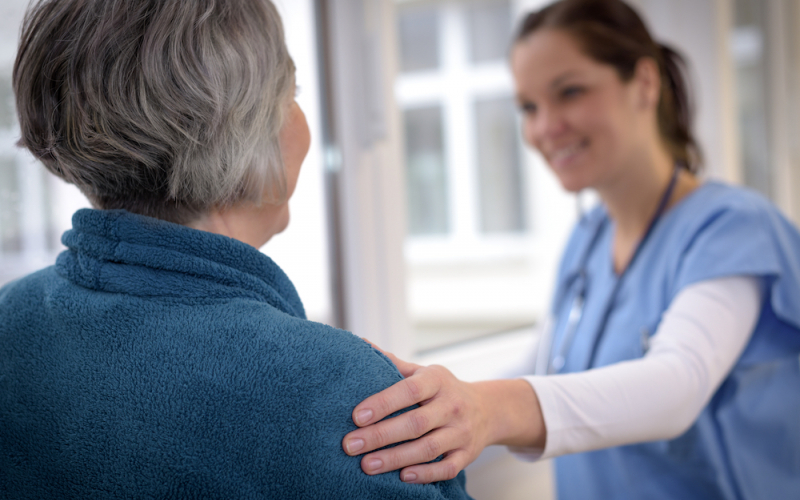Coping with Body Changes After Cancer Treatment
At Rocky Mountain Cancer Centers (RMCC), we know that making it through cancer treatment is a wonderful thing! However, some survivors will continue to experience lasting effects on the body that can affect their self-esteem. Because of this, we feel you should learn what steps you can take to make coping with these physical changes a little easier.

Cancer Can Have a Long-Term Impact on Your Body
Depending on the cancer treatment(s) you had, your body may have some very visible changes. And while some of these changes are permanent, others, although not permanent, may be noticeable for months or even years. With all of these differences to your appearance, it’s understandable that your self-esteem and confidence may be impacted to the point of having to adjust and accept what’s new for your post-treatment body.
Survivors must learn to cope with various physical changes, that can be either permanent or long-term. These might include:
- Hair that has changed in color and/or texture
- Scars that are a result of surgeries that removed a limb, breast, or other part of the body
- Ostomy (an opening created in the body so wastes can be collected in a bag)
- Reduction in muscle tone as a result of inactivity (called atrophy)
Some medications you take may also impact physical changes, such as
- Skin tone changes
- Weight loss that can result from medications or loss of appetite
- Weight gain triggered by medications or restrictions limiting physical activity
Coping with Body Changes
No one can truly understand a survivor’s struggle with body image unless they’ve personally experienced cancer and the physical changes it causes. Those who have not walked in your shoes may find it easy to think that you should be grateful you survived your illness and that you shouldn’t worry about how your body looks. The truth is, if your appearance was important to you before getting cancer, it’s likely that it’s still important to you after going through cancer.
There’s no doubt about it: cancer is a life-changing experience— and one that often gives survivors a new perspective on what is and is not important in life. By shifting your focus towards the positive aspects about your body (not the least of which is that it is free from cancer), it’s likely that you’ll spend less time mourning physical changes you’re unhappy with. Here is some advice that might help you during the times you are feeling self-conscious about aspects of your appearance:
- Remember that just because your body looks different on the outside, you are the same person on the inside. Those who loved you before cancer will continue to love you and your post-cancer body!
- Talk with other survivors. Above anyone else, they’ll be more likely to understand what you’re going through. In addition to validating your feelings, their experience and suggestions can help you find ways to cope.
- Go easy on yourself. It’s only natural that you’d grieve your pre-cancer body! Doing so will help you eventually move past those normal feelings and adjust to your new body.
- Understand that people will be curious about the changes in your appearance. The people closest to you (and some not so close) may ask questions. Decide how you’ll respond if people want to talk about these changes (if you don’t feel like sharing this information, simply tell them you’re not ready to talk about it at this time).
- When ready, consider researching possible reconstructive surgery, cosmetic solutions, and/or prosthetics that may be able to help you look more like your pre-cancer self. You can even discuss these options with your RMCC cancer care team.
- Keep in mind that time does not heal all wounds, but it can soften them. Some physical changes, such as hair loss, weight gain, or weight loss may go away eventually. Other changes like scars may become less noticeable over time.
- Focus on the positives. There are still things you can do to feel attractive! Depending on your unique physical situation, you can still get a manicure or pedicure; experiment with a beard, mustache, or goatee; buy some new clothes to accommodate changes to your body; have a makeover; try out new hairstyles, wigs, toupees, and/or hats; upgrade your eyeglasses; wear fun jewelry; etc., to draw attention to what you do love about your appearance.
Be sure to talk with your RMCC cancer care team, including our Social Workers and support groups, and/or seek help from a professional counselor if you continue to struggle with body issues. Our goal is to ensure you have the support you need to live a full life after cancer.